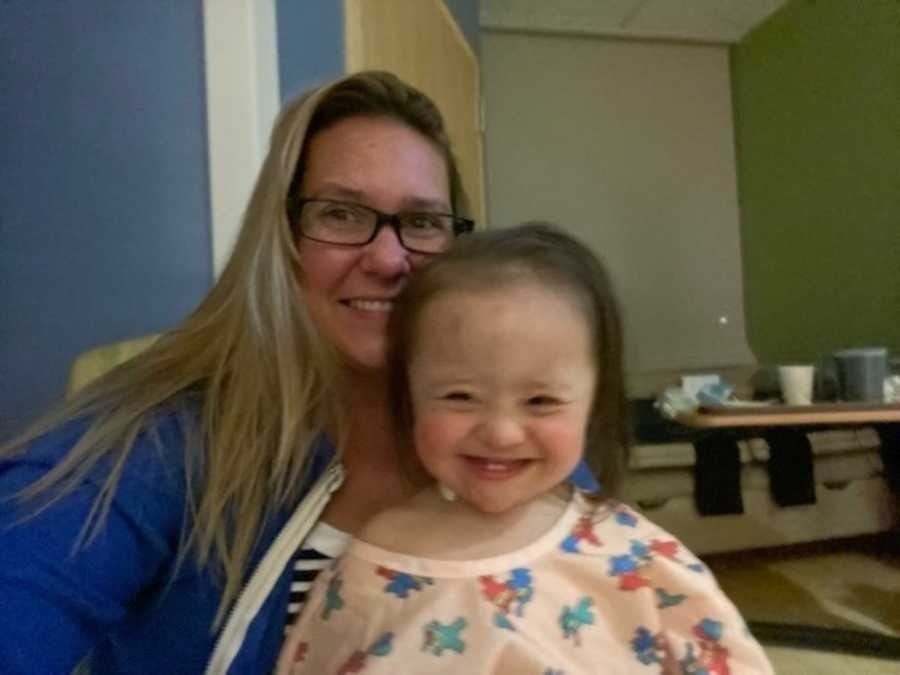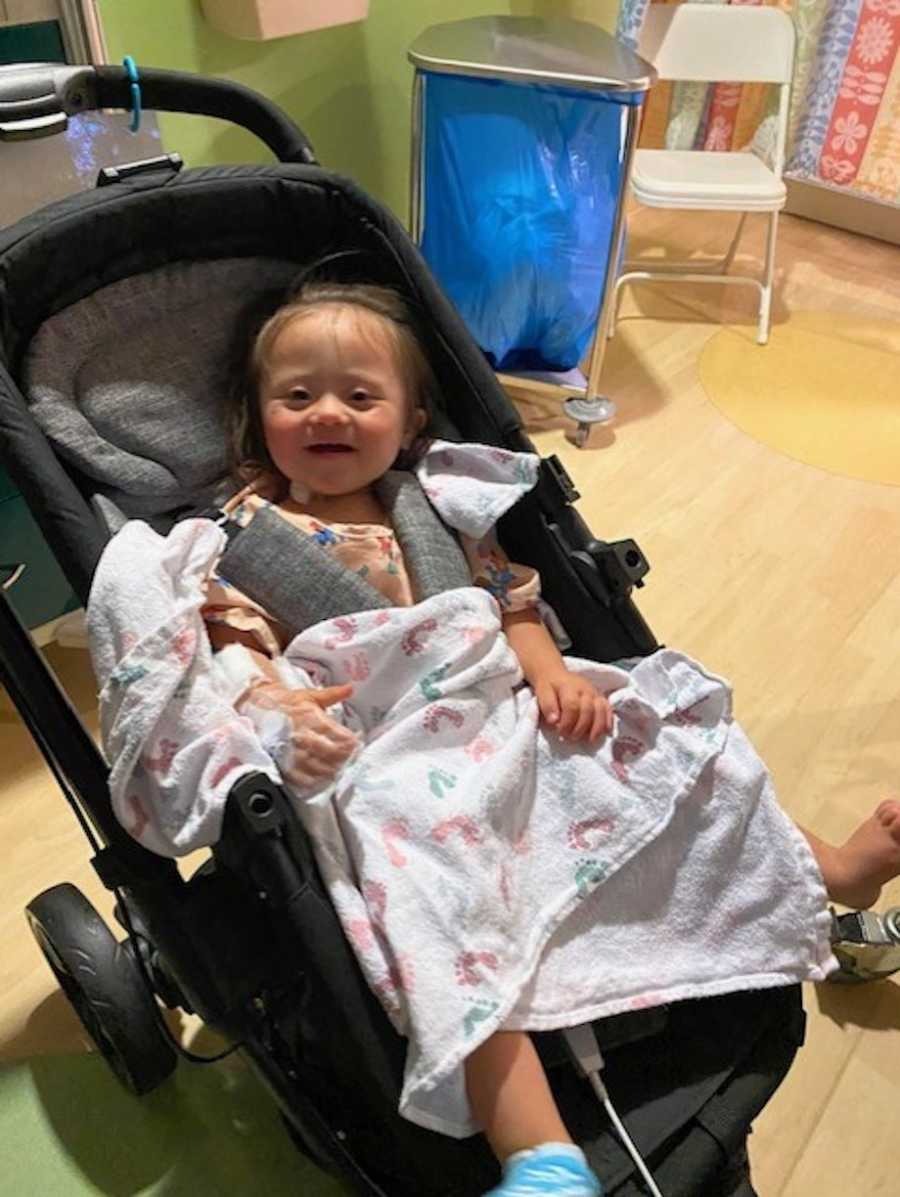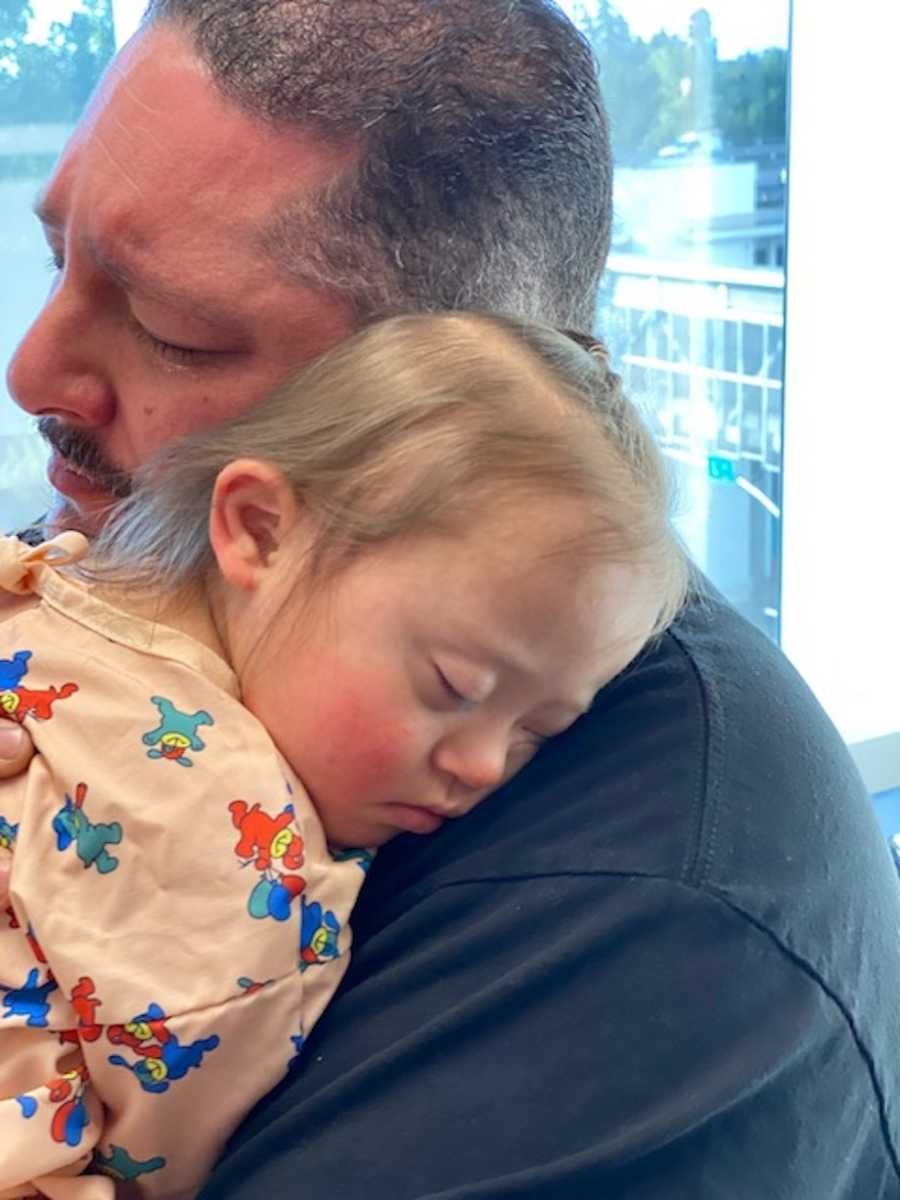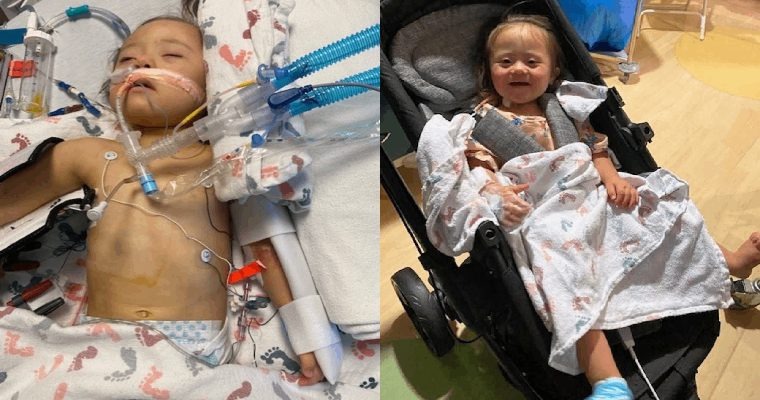“‘She will be alright!’ How many times has she heard or even said this to someone having surgery? ‘You’ll be fine! “Surgeons do this every day.”
‘My aunt’s cousin has a friend whose daughter recently gave birth to a baby who requires surgery, but is doing well now. You’ll do well!

However, what if it isn’t? This thought has been ingrained in the back of my mind for the past two years. About every six weeks, Ariel’s life is extended by six weeks when she is examined by her cardiologist. Telling someone, or even myself, that she’s going to be okay is akin to saying to the universe, “Hey universe, this is how it’s going to be, okay?” I think mothers with special needs do this a lot.
Ariel required correction for an atrial septal defect and a ventricular septal defect. All of these heart defects are common in people with Down syndrome. The type of surgery she required was a technological advance. She is one of the first to receive it in North America and the first on the West Coast. So making sure they perform these tasks on a daily basis is inapplicable.

The night before her surgery, we said goodbye to her twin sister Katalina. She planned to spend a week with her grandparents. The house was eerily quiet with just one baby, but Ariel enjoyed the extra attention. She settled in and she wanted as many hugs as possible. She fell unconscious on my chest and I memorized the sound and rhythm of her breathing.
I meticulously counted the number of her lashes on her almond-shaped eyes. She was so happily sleeping, but my mind was racing. Is this the best option? How will I monitor her recovery? If your ribs are cut, can I dedicate myself to making them recover properly? How am I going to deal with her brother? Will her scar from her define her or humble her? Will Katalina mourn Ariel? The most crucial question is her, will she survive?

The next day, at 5 in the morning, we arrived at the hospital. Evidently Ariel was in a good mood and I kept taking a picture of her for fear it would be the last I had of her. If something happened to her, I would take responsibility for her. We were admitted to the hospital and I was looking forward to this ordeal over. It felt like our lives were on pause and once the surgery was over we could go back to normal. The clock seemed to have stopped, spreading our anxiety. The next thing I knew, Ariel was being returned to the OR. He didn’t want to let go because that would have made the decision final. Her negative COVID test and her blood work have already been done. All the x-rays looked excellent. I had to drop her.

She voluntarily reached out to her new companions and the nurses fought over who would hug her. Even as she undergoes heart surgery, Ariel maintains her charisma. I froze, watching her face beaming at her until she disappeared behind the doors. Her father and I ate breakfast across the street before returning to a private reception room. Due to COVID we were the only ones allowed in and we were grateful to be there together. I sat there with my insides in knots.
Periodically, the nurse would call my cell phone, and every time the phone rang, I would feel crippling anxiety. Nursing staff were great at providing updates. Preparing her for surgery and setting her up in the recovery room took longer than the operation itself. I sat in the waiting room with her hospital-provided crocheted blanket while she underwent her five-hour operation. Finally, the nurse announced that the surgery had been a success.
